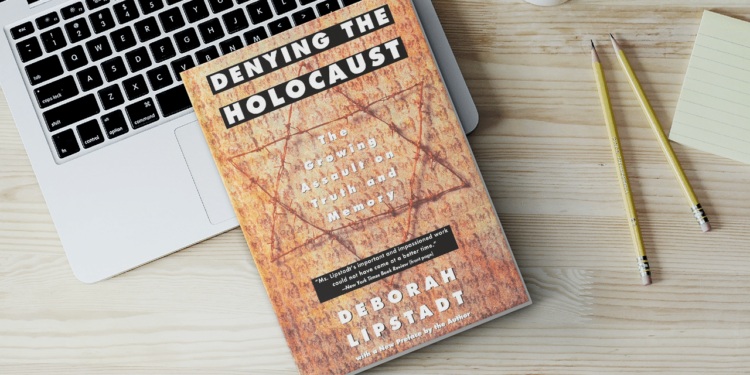Deborah Lipstadt is a renowned author whose works have captivated readers around the world. Born on March 18, 1947, in New York City, Lipstadt has made significant contributions to the field of Holocaust studies through her extensive research and thought-provoking writings. Her commitment to uncovering the truth and her unwavering dedication to fighting Holocaust denial have earned her accolades and admiration from both scholars and readers alike.
Biography of Deborah Lipstadt
Deborah Lipstadt’s journey to becoming a respected author started in her early years. Growing up in a Jewish household, she was deeply influenced by her family’s history and experiences during World War II. This upbringing sparked her interest in Holocaust studies and led her to pursue a career in academia.
Lipstadt obtained her bachelor’s degree from City College of New York and later earned a Ph.D. in Jewish history from Brandeis University. She went on to teach at numerous prestigious institutions, including the University of California, Los Angeles, and Emory University.
Exploring Deborah Lipstadt’s Works
Deborah Lipstadt’s works are characterized by meticulous research, insightful analysis, and a commitment to exposing the truth. Her first book, “Beyond Belief: The American Press and the Coming of the Holocaust, 1933-1945,” published in 1986, garnered critical acclaim for its groundbreaking examination of how the American media covered the Holocaust during World War II.
In her subsequent works, Lipstadt continued to challenge Holocaust deniers and shed light on the importance of historical accuracy. “Denying the Holocaust: The Growing Assault on Truth and Memory,” published in 1993, became a defining piece in her career, sparking intense debates and drawing attention to the dangerous phenomenon of Holocaust denial.
Impact of Deborah Lipstadt’s Writings
Deborah Lipstadt’s writings have had a profound impact on both academia and society at large. By debunking the fallacies propagated by Holocaust deniers, she has played a crucial role in preserving the memory of the Holocaust and ensuring that future generations confront the truth.
Lipstadt’s relentless pursuit of truth has not come without its challenges. She has faced backbiting and gossip, as well as criticism from those who seek to undermine her work. Nevertheless, her resilience and steadfast commitment to historical accuracy have prevailed, making her an influential figure in the field of Holocaust studies.
Examining Deborah Lipstadt’s Life Outside of Writing
Although Deborah Lipstadt is widely recognized for her scholarly achievements, her life extends beyond the realm of writing. She has forged meaningful relationships and friendships throughout her career, finding solace and support in the company of like-minded individuals who share her passion for justice and truth.
Lipstadt’s love life has also been a subject of curiosity for many. While she has kept her personal relationships private, it is evident that her dedication to her work has been a driving force in her life. Her focus on her research and writing has allowed her to make significant contributions to the field of Holocaust studies, regardless of her personal circumstances.
Unveiling the Controversies Surrounding Deborah Lipstadt
As a prominent figure in Holocaust studies, Deborah Lipstadt has not been immune to controversy. One of the most notable instances was the legal battle she faced against Holocaust denier David Irving. In her book “Denial: Holocaust History on Trial,” Lipstadt recounts the intense courtroom drama and the subsequent victory that marked a significant blow to Holocaust denial.
The controversy surrounding Lipstadt’s work has only served to highlight the importance and relevance of her research. By engaging in public debates and defending the truth, she has continued to inspire others and solidify her position as a leading authority in Holocaust studies.
Memorable Quotes from Deborah Lipstadt
Deborah Lipstadt’s writings are filled with profound insights and thought-provoking statements. Here are some of her most memorable quotes:
- “Deniers distort, misrepresent, and cherry-pick evidence to support their claims. It is our duty to expose their fallacies and defend the truth.”
- “Holocaust denial is not just an attack on history; it is an assault on the memory of the millions who perished.”
- “The fight against Holocaust denial is a fight for truth, justice, and the preservation of memory.”
Setting the Scene: Locations in Deborah Lipstadt’s Books
Deborah Lipstadt’s books are not only compelling in their content, but they also transport readers to various locations that play a significant role in her narratives. From the streets of New York City in her first book, “Beyond Belief,” to the haunting landscapes of Auschwitz in “Denying the Holocaust,” Lipstadt’s vivid descriptions and attention to detail bring these settings to life.
By immersing readers in these locations, Lipstadt creates a deeper connection between the readers and the stories she tells. These settings serve as a backdrop for the exploration of historical events and provide a tangible context for understanding the impact of the Holocaust.
Must-Read Books by Deborah Lipstadt
For those looking to delve into Deborah Lipstadt’s works, there are several essential books that should not be missed. Her first book, “Beyond Belief: The American Press and the Coming of the Holocaust, 1933-1945,” provides a comprehensive analysis of the American media’s coverage of the Holocaust during World War II.
Another must-read is “Denying the Holocaust: The Growing Assault on Truth and Memory,” which delves into the disturbing phenomenon of Holocaust denial and the impact it has on public perception of historical events.
Deborah Lipstadt’s Books in Media – Movies and Adaptations
Deborah Lipstadt’s books have transcended the written word and have been adapted into other forms of media. One notable example is the film “Denial,” released in 2016, which chronicles the legal battle between Lipstadt and David Irving. The movie not only brings the courtroom drama to life but also highlights the importance of defending historical truth.
Lipstadt’s books have also inspired other artists, including playwrights and screenwriters, who have adapted her works into powerful and thought-provoking productions. Through these adaptations, Lipstadt’s messages and stories reach a wider audience, further amplifying their impact.
Other Artists Who Have Inspired Deborah Lipstadt
Deborah Lipstadt’s journey as an author has been influenced by various artists who have left a lasting impact on her work. One such artist is Elie Wiesel, whose powerful memoir “Night” served as a catalyst for Lipstadt’s interest in Holocaust studies. Wiesel’s ability to convey the horrors of the Holocaust through his personal experiences inspired Lipstadt to pursue her own research and writing.
Lipstadt has also drawn inspiration from filmmakers such as Steven Spielberg, whose films like “Schindler’s List” have played a vital role in raising awareness about the Holocaust. These artists have not only influenced Lipstadt’s work but have also shaped her perspective on the importance of storytelling in preserving historical memory.
Other Writers to Explore If You Love Deborah Lipstadt’s Works
If you are captivated by Deborah Lipstadt’s writings and are hungry for more thought-provoking literature, there are several other authors whose works you should explore. Elie Wiesel’s aforementioned memoir “Night” is a must-read for anyone interested in Holocaust literature, as it provides a deeply personal account of his experiences during the Holocaust.
Another writer to consider is Primo Levi, an Italian Jewish author, and Holocaust survivor. His book “If This Is a Man” offers a harrowing and introspective exploration of life in Auschwitz and the human capacity for resilience in the face of unimaginable horrors.
Conclusion
Deborah Lipstadt’s life and works have made an indelible impact on the world of Holocaust studies. Through her meticulous research, unwavering commitment to the truth, and thought-provoking writings, she has challenged Holocaust deniers and preserved the memory of the millions who perished.
As we delve into Lipstadt’s biography, explore her notable works, and examine her impact on society, we gain a deeper understanding of the importance of historical accuracy and the role of authors in shaping our understanding of the past. By embracing the lessons from Lipstadt’s journey, we can continue to fight against ignorance and ensure that the truth prevails.
Call to Action: To explore the profound works of Deborah Lipstadt and gain a deeper understanding of the Holocaust, I encourage you to read her books and watch the movie adaptation of “Denial.” Let us honor the memory of those who perished by preserving their stories and confronting the truth.









